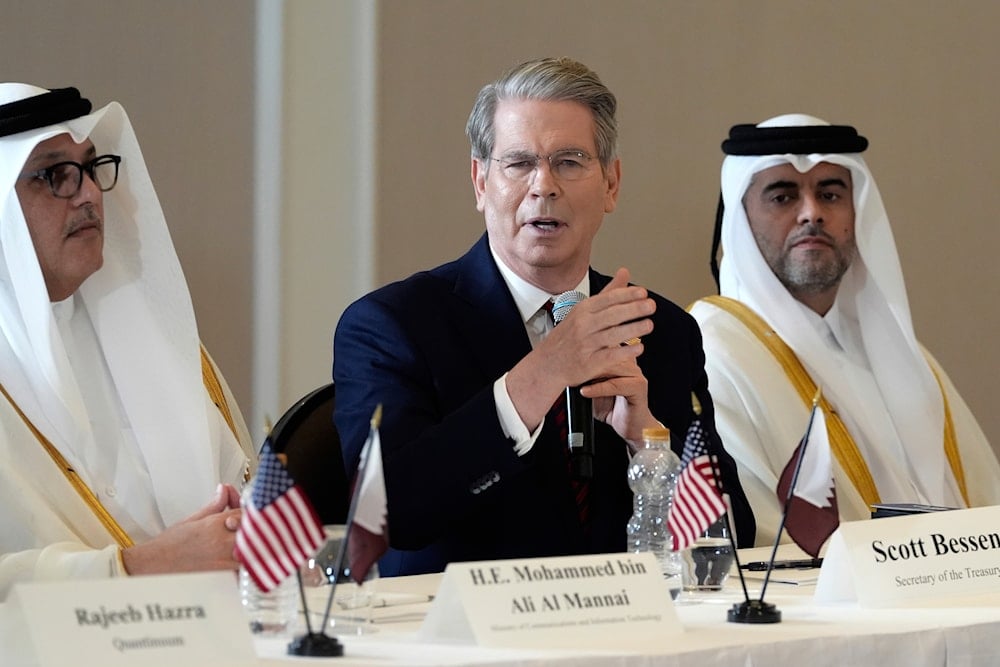US formally lifts sanctions on Syria, aiming for reconstruction
The United States has officially lifted sweeping economic sanctions on Syria following a meeting between the two countries' presidents.
-

US Treasury Secretary Scott Bessen gestures during a business roundtable, attended by US President Donald Trump, on May 15, 2025, in Doha, Qatar. (AP)
The United States on Friday lifted comprehensive economic sanctions on Syria, opening the door for foreign investment and reconstruction efforts following the collapse of the Bashar al-Assad government.
The move formalizes a decision previously announced by US President Donald Trump during a regional tour that included meetings with Turkish and Saudi leaders. Trump described the sanctions as "brutal and crippling," and said their removal was in response to demands from regional partners seeking stability and reconstruction in post-war Syria.
“Syria must continue to work towards becoming a stable country that is at peace, and today’s actions will hopefully put the country on a path to a bright, prosperous and stable future,” said US Treasury Secretary Scott Bessent in a statement.
Sanctions Lifted Amid Regional Realignments
The department issued a general license, known as GL25, which “authorizes transactions prohibited by the Syrian Sanctions Regulations, effectively lifting sanctions on Syria,” the Treasury said in a statement.
“GL25 will enable new investment and private sector activity consistent with the President’s America First strategy,” the statement said.
The easing of sanctions includes authorization for transactions involving Syria’s petroleum products, financial services, and new investments across various sectors. It also permits engagement with Syria’s transitional government and previously sanctioned state-linked institutions.
Simultaneously, the US State Department issued a broad 180-day waiver allowing American allies and private companies to participate in Syria’s reconstruction, signaling Washington’s intent to normalize economic ties with Damascus under its new leadership.
The United States had imposed sweeping restrictions throughout Syria’s 14-year war, penalizing foreign entities involved in reconstruction and enforcing secondary sanctions on countries that sought to cooperate with the Syrian state.
Following the ousting of Assad last year, Syria’s transitional authorities have prioritized restoring diplomatic and economic relations with the international community. The lifting of sanctions, observers note, removes one of the key obstacles to Syria’s recovery and reintegration into regional political frameworks.
Read more: Internal debate in US over Trump's sanctions relief vow for Syria: AP
Conditions and cautions
According to the US Treasury, the relief is contingent upon Syria preventing the use of its territory as "safe haven for terrorist organizations" and ensuring protections for ethnic and religious minorities.
Although the Trump administration’s decision has received cautious praise from some Western analysts and Arab governments, others have raised concerns over the speed of reintegration and the risks of premature economic normalization.
Still, proponents argue that reconstruction is critical to regional stability and that continued sanctions would only prolong humanitarian suffering.
Read more: Syria presented belongings of spy Eli Cohen to 'Israel': Reuters

 3 Min Read
3 Min Read










